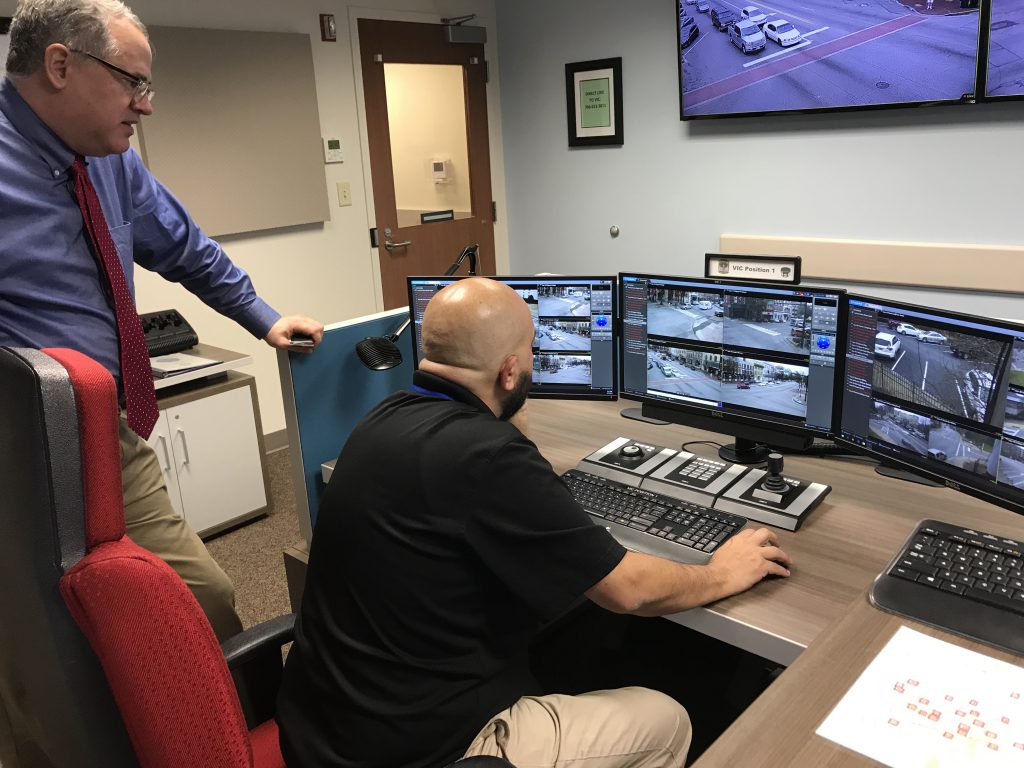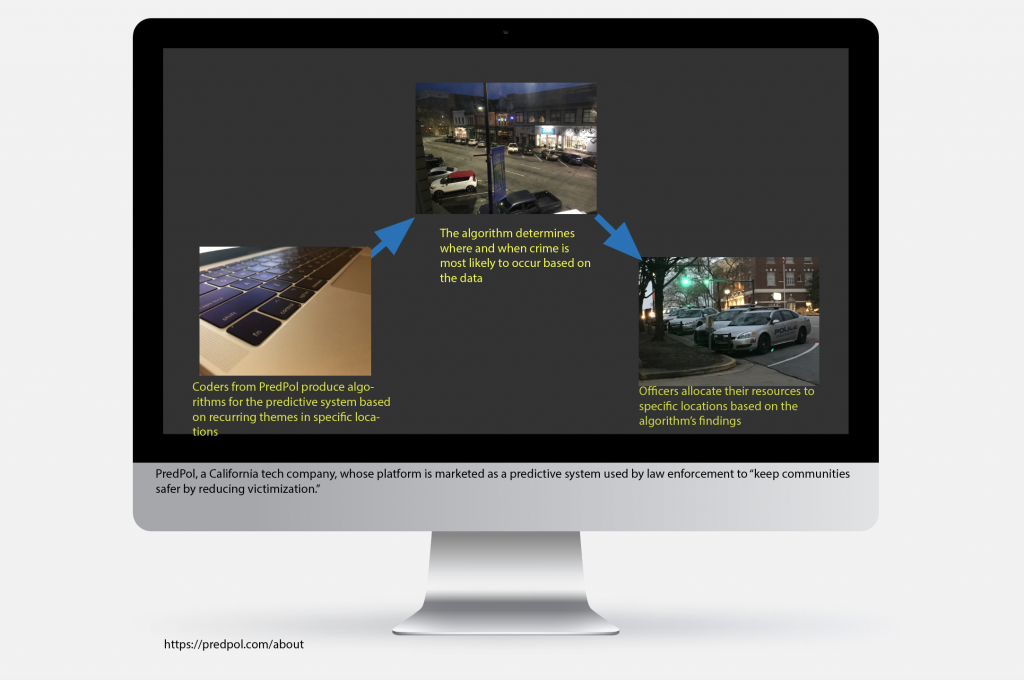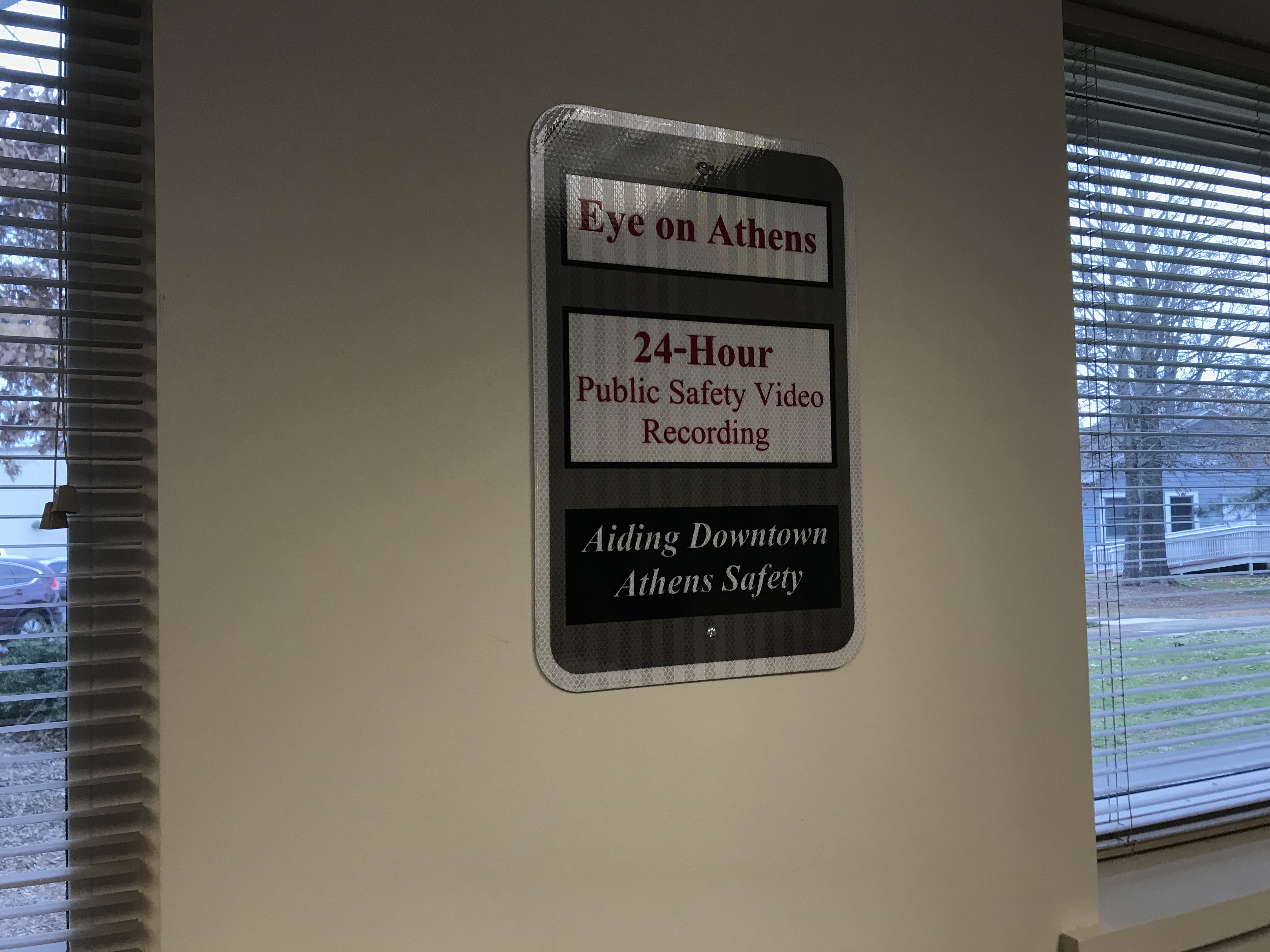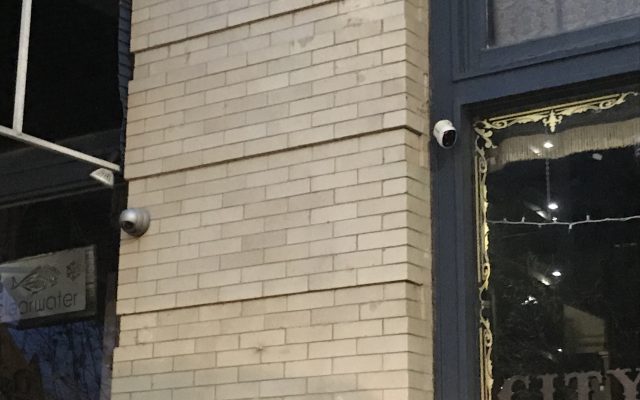For some, it comforts them to know that if someone in their community commits a crime, police officers in the area could use the technology available to them to catch them. For others, advances in surveillance technology means that their privacy could be in danger.
Why It’s Newsworthy: There is an obvious need for active law enforcement in the downtown Athens area. It is important for surveillance to be effective to keep crime off the streets and people safe in their homes. Advances in surveillance technology in a given area could mean efficiency in slowing down the rate of crime.
There are approximately 30 fiber optic cameras, like the ones seen below, spread strategically around the downtown Athens area that are monitored in a control room in the East Police Precinct on Lexington Road. They are recording 24 hours a day, seven days a week. Public Information Officer, Geoff Gilland, thinks that the system is extremely effective.
“It’s an amazing system,” Gilland says. “If we have a suspect, and if all the cameras are working properly, we can follow them from street to street to street.”
With the improved quality of public camera footage, the efficiency of gathering and presenting evidence seems to have increased. Sandra Mayson, an assistant professor of law at the University of Georgia, says that video surveillance is more accurate and efficient than ever.
“There’s video evidence in increasing numbers of cases, and soon it’s going to be universal,” said Mayson, who teaches courses in criminal law and evidence at UGA.
Filling in the gaps of a criminal investigation based on witness accounts and crime-scene sweeps alone can be a daunting process. With access to real-time, high definition footage, officers can better identify potential witnesses or suspects and gain a clearer understanding of what really happened.
“It’s hard to argue with video when the cameras clearly capture you doing something you’re not supposed to be doing,” Gilland says.
Access to real-time video has even had an impact on jurors’ perceptions toward evidence.

Andrea Dennis, the John Byrd Martin Chair of Law at UGA, thinks that individuals simply like to see pictures and video when it comes to observing evidence.
“Individuals who want to see real-time video recordings now have more opportunity to do that than they did before because of the number of cameras available,” says Dennis.
Invasion of Privacy
Investigators can also use new surveillance technology to access personal information, search history and emails of persons of interest through those peoples’ computers and phones.
With these technological advances comes the constant feeling that someone’s actions and conversations could all be seen or monitored by someone.
“The watchful government eye has a chilling effect,” Mayson said.
Early last year a bill written by Senator Jerry Hill went through the California State Assembly that called for reform and public debate when it comes to “law enforcement’s acquisition of new surveillance technology.” Hill explicitly cited his concern regarding the use of drones, social media surveillance and license plate readers.
This bill eventually ended up stalling in the Assembly Appropriations Committee, but it is expected that calls for public police oversight reform will still come through efforts of entities like the Electronic Frontier Foundation.
Regulatory Challenges
The tradeoff between efficient evidence gathering and individual privacy has led to a challenge for legislators.
“It’s a perpetual challenge to regulate new technology,” Mayson explained. “There have been many cases where people challenge the way that surveillance technology has been used on Fourth Amendment grounds.”
In the 2018 case of Carpenter v. United States, the Supreme Court found that the government had inhibited Timothy Carpenter’s reasonable expectation of privacy when they accessed his historical cellphone location records without a search warrant.
In his majority opinion, John Roberts said the case represented the struggles with legal regulation of the “seismic shifts in digital technology.”
Future Innovation
This technology is advancing, which means that our law enforcement’s ability to monitor people of interest will continue get stronger and more efficient.
The introduction of artificial intelligence to surveillance work means opportunities to help stop and prevent crimes now and in the future. Start-up companies, like PredPol in Santa Cruz, California, are starting to create algorithms that can help law enforcement better allocate their resources.

“We have automated artificially intelligent predictive systems that are designed to predict where crime is going to happen and who is going to commit those crimes,” Mayson explained. “It could be a revolutionary step forward for evidence gathering.”
Jason Levenstiem is a fourth-year majoring in journalism in the Grady College of Journalism and Mass Communication at the University of Georgia.











